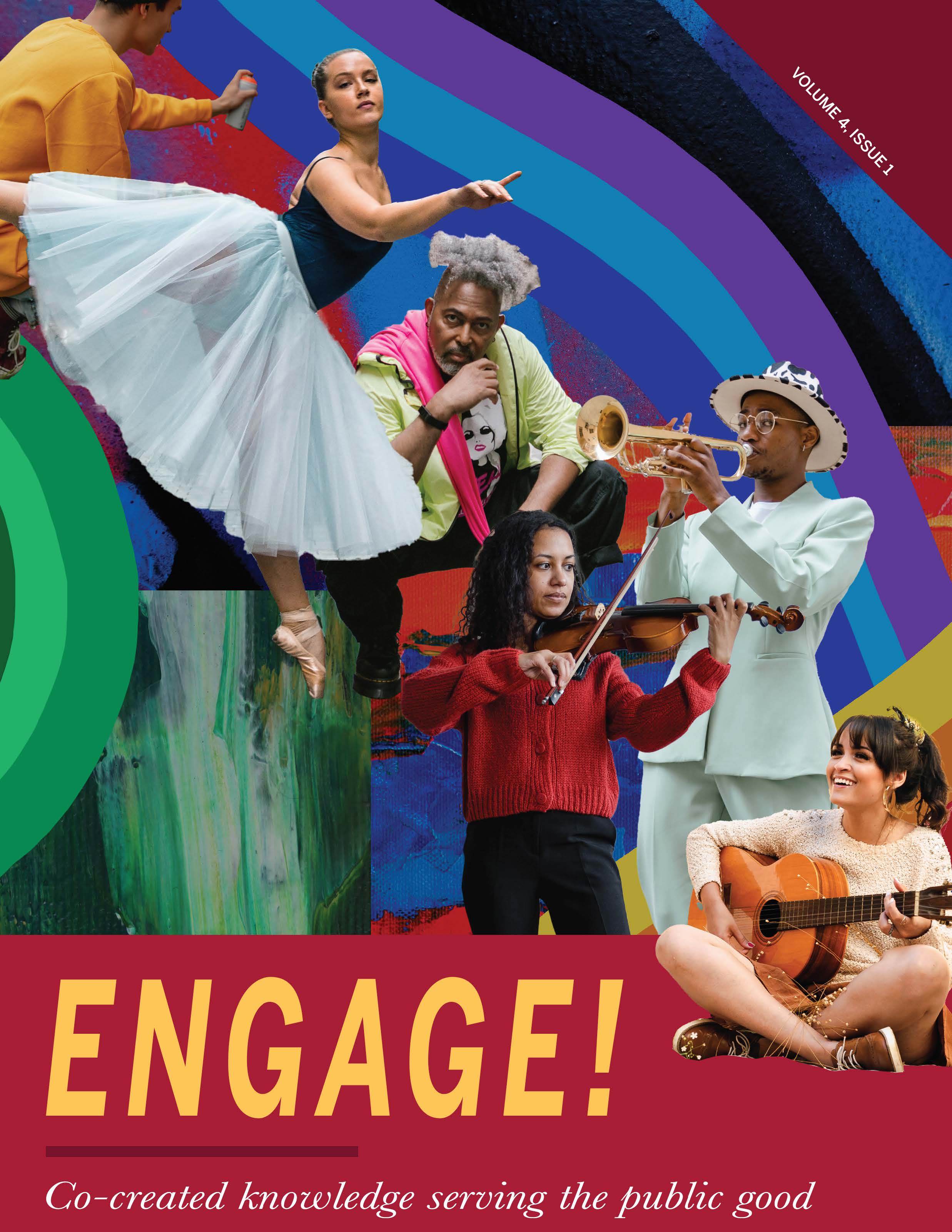Using Art to Undermine Epistemic Injustice in DBT Research
DOI:
https://doi.org/10.18060/26050Keywords:
Dialectical behavior therapy, Activity Theory, ArtAbstract
Through participatory Arts-Based Research, constructed within the theoretical basis of the Activity System, participants engaged with Dialectical Behavior Therapy (DBT) program content to develop a cohesive and meaningful project structure and aesthetic. Practitioner/researcher supremacy is disrupted by participatory Arts-Based Research and upheld by temporal constraints, as demonstrated by participant engagement and disruptions to participant collaboration. This research pilots a replicable framework that centers the experiences of individuals completing DBT, interrupts cycles of harm, and uplifts social knowledge construction that emanates from DBT skills training communities. DBT is a skills-based psychotherapeutic approach that prepares individuals to address problems in living that result from the development of mental disorders in environments that persistently signal that an individual is an unreliable informant of their own experience. In its standard format, DBT incorporates a group skills training component to remediate skill deficits developed in this invalidating environment. The body of literature that explores DBT skills training is structured in a way that elevates practitioner/researcher perceptions of individual progress over participants’ interpretations of their own collective experiences. Arts-Based Research is a theoretically-backed methodology that can disrupt the harmful parallels between the development of the disorders DBT is intended to treat and the dominant research paradigm into DBT.
Downloads
Published
Issue
Section
License
Copyright (c) 2022 Beth Bailey, Monica W. Tracey

This work is licensed under a Creative Commons Attribution-NonCommercial 4.0 International License.

